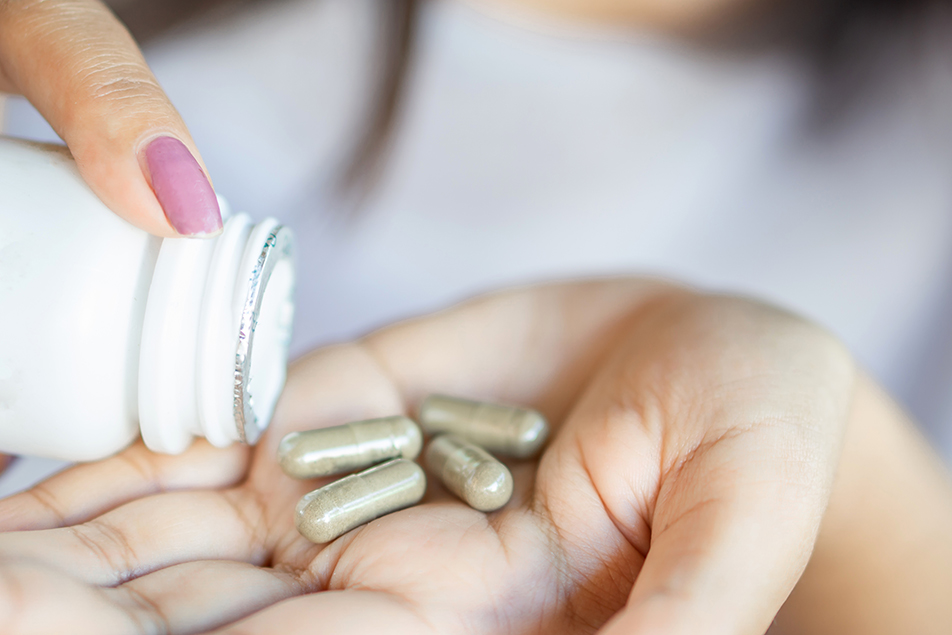
Probiotics have become increasingly popular over the last few years. With celebrity endorsements and claims of lofty health benefits, it’s easy to see why so many are giving these beneficial bacteria a try. But is it safe or can it do more harm than good? To answer these questions and more, we spoke with Nelson Moy, MD, PPG – Gastroenterology, to better understand this sought-after supplement.
What is a probiotic?
Probiotics are nutritional supplements that contain live micro-organisms, often in the form of bacteria or yeast that have health benefits.
What do probiotics do in the body?
At present, there is a lot we don't understand about the interplay between the gut microbiome and its link to gastrointestinal diseases (GI). It is theorized that due to an imbalance or lack of diversity brought on by dietary choices, stress, medications and other comorbid diseases, such as diabetes, it can lead to GI distress. We don’t completely understand how probiotics help with GI symptoms, however, it can help to restore an imbalance in the microbiome which may help control the inflammatory response and change pain perception.
Who should be taking a probiotic?
Healthy individuals with occasional GI upset like bloating, irregular bowel habits and abdominal cramping may benefit from this supplement. However, as with any GI symptoms, chronic or severe symptoms should be evaluated by a healthcare professional in case there’s a significant GI disorder that may require treatment.
How does someone know if they should be taking a probiotic?
This should always be reviewed with your health care provider beforehand. They can help determine if there’s a more concerning issue that should be evaluated first. With these types of supplements, we’re aiming to improve GI symptoms, if we’re certain there isn’t a more serious medical problem or issue.
Will a probiotic fix digestive issues?
Unfortunately, none of these medications are FDA approved to treat GI diseases. We often utilize probiotics as a supplement that may benefit certain individuals with functional bowel disease (i.e. irritable bowel syndrome). There is some research to suggest that probiotics can be considered for the prevention of Clostridium difficile (C. difficile) infection in adults and children who take antibiotics. Additionally, probiotics have been used to manage pouchitis which is a complication that can occur after surgical treatment of ulcerative colitis.
What are the risks of taking a probiotic?
There is limited research looking at the safety data, but probiotics have been used extensively in healthy individuals without significant issues. With that said, some patients may experience diarrhea or worsening bloating symptoms. Also, individuals with severe illness or a compromised immune system should avoid taking probiotics. They are at an increased risk for infection with the consumption of a microorganism.
What is the best way to take a probiotic?
Typically, probiotics should be taken on an empty stomach, 30 minutes before a meal.
How long should I take a probiotic?
For the moment, there isn’t a definite answer, but we often recommend a 1-2-month trial to see if there are any benefits to the supplement. When using a probiotic, the key is consistency so you can evaluate its effectiveness. If there is no improvement, then patients should stop using it.
Are refrigerated or shelf-stable probiotics best?
The answer to this question is patient dependent. What works for one individual may not work for another. Typically, shelf-stable probiotics are more readily accessible and easier to take. However, if you do elect to utilize probiotics for your GI health, the key is to monitor any improvements or side effects before continuing the supplement for the long term.
The takeaway
There’s considerable ongoing research regarding the microbiome and the interplay with patient's health. It's always important to see your primary care provider for evaluation if you have any new GI symptoms. While there is new research regarding the use of probiotics as a treatment for GI diseases, we see probiotics as more of a supplement to help with GI health rather than medication for the treatment of specific GI diseases.